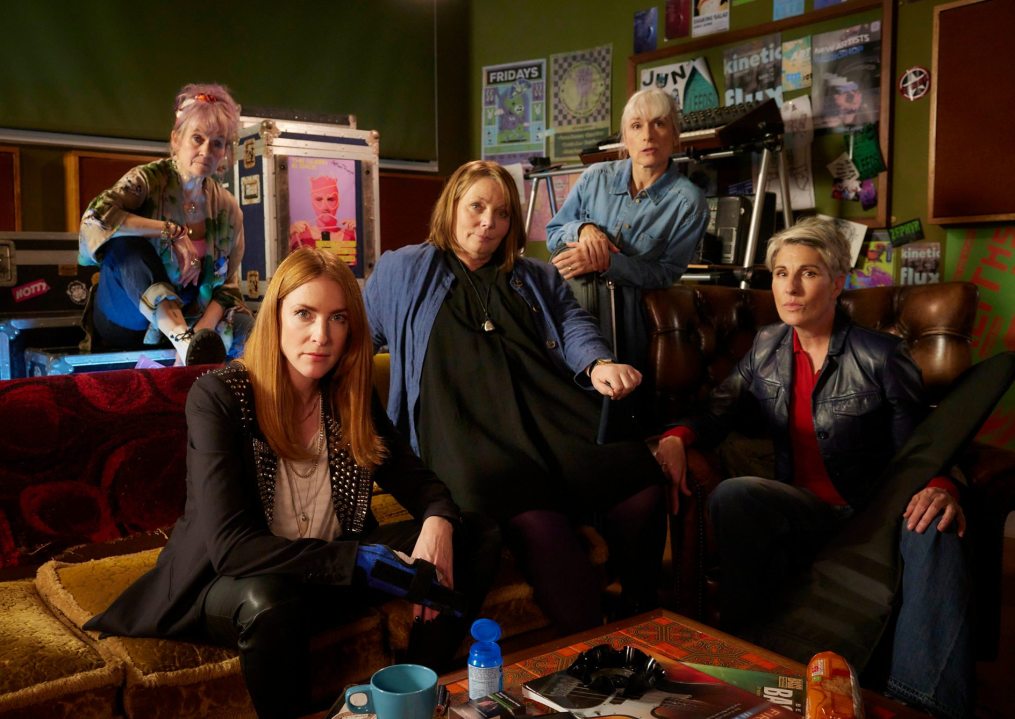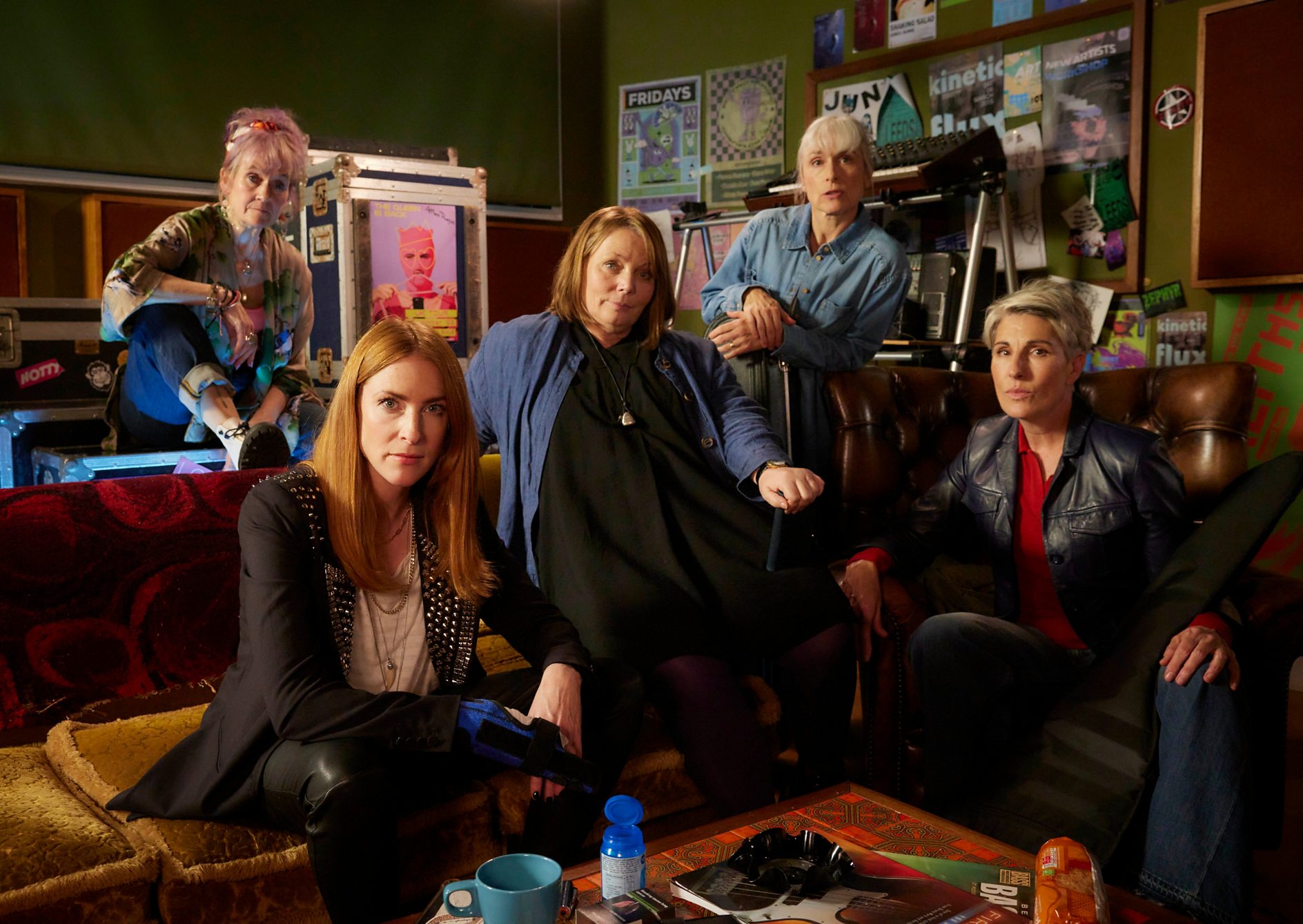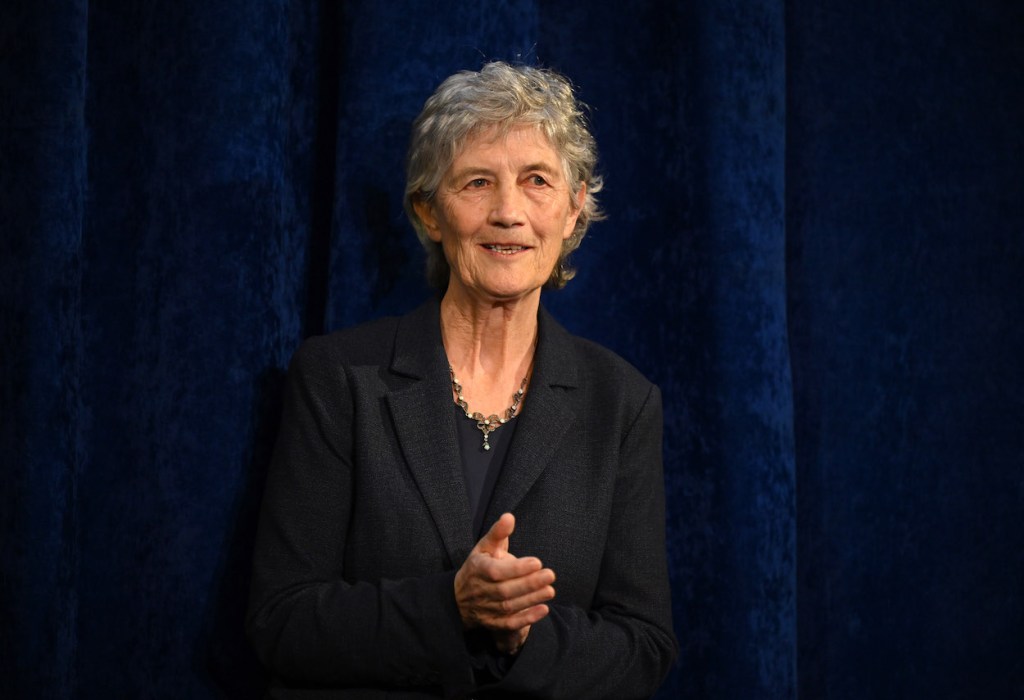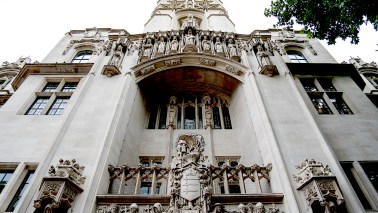Picture the scene: five middle-aged male actors playing rockstars are lolling about on sofas in a recording studio. In front of them is an attractive young female producer; the men start making obscene gestures behind her about her bottom, sniggering and giggling like schoolboys, one sticks out his tongue through his fingers, intimating what he would like to do to her. Such a scene, if it was ever commissioned, would no doubt have been left on the cutting-room floor. It would be seen as puerile, sexist and outdated. Well, it was commissioned, and by the BBC, and is being broadcast this month in the final episode of Riot Women. Everything is accurate in my description except for one detail: those men are actually middle-aged women, and the target of their offensive behaviour is a man.
Riot Women, by Sally Wainwright, is not the first drama to challenge traditional gender roles in the name of female empowerment, but it really seems to hate men. The six-part series is ostensibly about how five menopausal women come together to make music and inspire each other to rise above the difficulties they face. But another way of seeing it is that it is six hours of prime-time television in which every male character is portrayed as (at best) hopelessly ineffectual and dishonest or (at worst) a psychopathic murderer and rapist, with not much in between.
It is set in Hebden Bridge, which appears to be twinned with Brighton for all the virtue signalling it indulges in. Jess (Lorraine Ashbourne) the main matriarch (and drummer), runs a pub that is festooned with rainbow and trans flags. Her family is composed of mixed-race grandchildren, one trans daughter, one lesbian daughter (and her foreign-born, tattooed, lover) and a dreadlocked granny (played by Sue Johnston, who benignly smokes weed throughout). The only man on the scene is Beth’s useless partner Jerry (played by Tony Hirst), who is ritually mocked, and seems to have been told by the director to look at the floor, apologetically, whenever he speaks.
Another male character, played by Peter Davidson in an hilarious piece of miscasting, typifies the casual sexism that men seem so incapable of avoiding in Wainwright’s world, telling a woman he has only just met what he would like to do to her in private. The women, saints that they are, either endure such affronts stoically, or knock the male bastard out with Mike Tyson-like piledrivers. This sort of violence is entirely commendable.
But Davidson’s character resembles Justin Trudeau when compared to Rudy (Ben Batt): he is a thief, a bully, a sexual predator, a voyeur who takes photographs of women when they have been physically assaulted (by a group of white men) to post them on social media, and is responsible for abusing a young policewoman. Rudy is also a policeman. His line-manager is male, and is shown to be the personification of institutionalised sexism in episode one. This is a script that hasn’t got time for nuance (or character development and narrative arch either come to that).
Everywhere you look in Riot Women there are political tropes which are as predictable as they are facile: the women’s first gig is a fundraiser for refugees; the lead singer is running away from her abusive partner; her father is inside for a drug dealing; the only good cops are young female and Asian; the female characters are angry because they are the victims of male behaviour. Of course, none of this should matter: it is, after all, just a piece of disposable froth that will be forgotten as quickly as the dirge-like anthems the band sings as collective hymns to empowerment (‘lets start a riot, we won’t be quiet’). But what it does tell us is that, five years after being appointed as Director General, Tim Davie’s BBC is still, fundamentally, a place that sees such dramas as suitable for mainstream viewing, and that the ideas it promotes are essentially incontestable and inoffensive. Wainwright’s world view is indistinguishable from the BBC’s because they originate from the same set of values.
That such choices could have been taken at every level, from its initial commissioning, to the writing and greenlighting of the script, to the casting (and even to the props), illustrates how far the corporation has to go if it is really going to be reflective of the whole country. The Riot Women’s treatment of men is framed as being enlightened, but in its insight into how one sex behaves it is as sophisticated and balanced as On the Buses. The difference with Reg, Blakey and Jack is that we didn’t have to pay to watch their boorish behaviour every week.








Comments